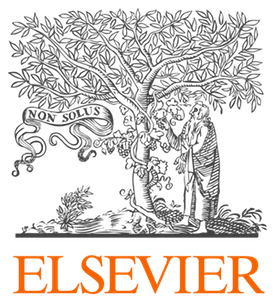Digital Diagnosis Support Earns Elsevier Innovation Nod
The company is one of several tech players to win a Frost & Sullivan’s Best Practices Award.

Tech-driven diagnostic tools are paying off for a rising star in the clinical decision support systems (CDSS) space.
Elsevier, the global information analytics company, won Frost & Sullivan’s 2017 Technology Innovation Award, according to an announcement this week from the organizations. Elsevier took the growth partnership firm’s honor for its diagnostic support systems, ExpertPath and STATdx, for pathologists and radiologists, respectively. The tools integrate “evidence-based content” into providers’ diagnostic processes to improve outcomes.
Divyaa Ravishankar, industry principal for Frost & Sullivan, praised Elsevier for its role in a market that relies on big data and artificial intelligence to improve clinical decisions as healthcare continues its ascent toward digital.
“As a leader in the CDSS market, Elsevier knows the worth of extensive information, but the company also understands that the information must be easily accessible to optimize its value in diagnostic decisions,” Ravishankar said in a statement. “Elsevier designed its solutions to push relevant and easily searchable data, ensuring physicians are not overburdened with non-relevant information.”
The tech innovation nod goes each year to a business that’s creating cutting-edge, functional products that are on the rise in the marketplace. The accolade is also meant to spotlight the “quality of the solutions and the customer value enhancements” borne of the breakthroughs, according to the company.
Frost & Sullivan plans to celebrate its Best Practices Awards winners at a ceremony later this month in Mexico City, Mexico. The program recognizes organizations across the world for “demonstrating outstanding achievement and superior performance” in a number of categories.
Other tech-heavy companies slated to receive awards include the anti-virus giant McAfee, for its strides in global endpoint security, and Jive Communications, for its customer service surrounding third-party software integration.
Used by more than 50,000 clients in 100 countries, Elsevier’s STATdx helps radiologists deliver more than 4000 diagnoses. It banks on 200,000 images, 20,000 patient cases, and 1300 diagnosis modules to help them make decisions. In North America, 99% of academic hospitals use the tool, according to Elsevier.
ExpertPath, meanwhile, offers “timely aid” to pathologists through an online decision support system. The tool uses diagnosis lists, tests, image galleries, and specimen-handling protocols to help users make diagnoses, according to the Dutch company.
Ravishankar went on to tout Elsevier’s accessibility, due in large part to the many languages supported by its technologies.
“Elsevier’s customer support is outstanding,” Ravishankar added. “The company is ahead of the curve regarding what customers need.”